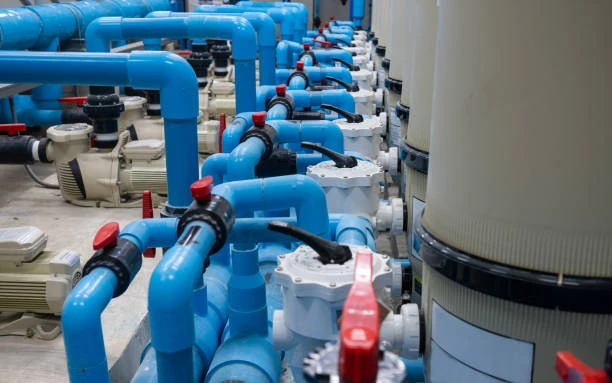Introduction
PVC pipes are widely used in various applications, including plumbing, drainage, and construction. However, concerns about their safety have been raised in recent years. This article delves into the safety of PVC pipe, examining their composition, uses, and potential risks.
What is PVC?
PVC, or polyvinyl chloride, is a synthetic plastic polymer. It is one of the most commonly used plastics worldwide. PVC is known for its durability, chemical resistance, and versatility. It can be manufactured in various forms, including rigid pipes and flexible films, making it suitable for diverse applications.

Uses of PVC Pipes
- Plumbing Systems
- PVC pipes are widely used in residential and commercial plumbing for water supply and drainage. Their corrosion resistance makes them ideal for transporting potable water.
- Construction
- In the construction industry, PVC pipes are used for electrical conduits, drainage systems, and even as structural components.
- Irrigation
- Agricultural applications also utilize PVC pipes for irrigation systems due to their ability to withstand various environmental conditions.
Benefits of Using PVC Pipes
- Durability
- PVC pipes are known for their long lifespan, often lasting over 50 years when properly installed. They are resistant to corrosion and degradation from chemicals.
- Lightweight and Easy to Install
- Compared to metal pipes, PVC is lighter, making it easier to handle and install. This can reduce labor costs during installation.
- Cost-Effective
- PVC pipes are generally more affordable than alternative materials, such as copper or steel, making them a popular choice for various applications.
Health and Safety Concerns
Despite their advantages, PVC pipes have faced scrutiny regarding safety. Here are some key concerns:
- Chemical Additives
- PVC is often manufactured with additives, including phthalates and lead, which can pose health risks. Phthalates are used to increase flexibility, while lead is sometimes added for stabilization.
- Off-Gassing
- New PVC pipes may emit volatile organic compounds (VOCs), which can affect indoor air quality. While the levels are generally low, prolonged exposure could be a concern.
- Environmental Impact
- The production and disposal of PVC can lead to environmental pollution. Burning PVC releases toxic dioxins, which are harmful to both human health and the environment.
Is PVC Pipe Safe for Drinking Water?
The safety of PVC pipe for drinking water has been a topic of debate. Here’s what you should know:
- Regulations and Standards
- In many countries, including the United States, PVC pipes used for drinking water must meet specific safety standards. The American National Standards Institute (ANSI) and the National Sanitation Foundation (NSF) certify PVC pipes for potable water use.
- Leaching Concerns
- Some studies suggest that chemicals from PVC pipes can leach into drinking water, particularly when exposed to high temperatures. However, the levels are typically below safety thresholds set by regulatory agencies.
- Best Practices
- To minimize risks, it is essential to choose high-quality, certified PVC pipes for drinking water applications. Avoid using older pipes that may contain harmful additives.
Alternatives to PVC Pipes
For those concerned about the safety of PVC, several alternatives are available:
- CPVC (Chlorinated Polyvinyl Chloride)
- CPVC pipes are similar to PVC but can handle higher temperatures. They are also suitable for potable water use and have a different set of safety standards.
- PEX (Cross-Linked Polyethylene)
- PEX pipe are flexible and resistant to scale and chlorine. They are gaining popularity for residential plumbing systems due to their ease of installation.
- Copper Pipes
- Copper is a traditional choice for plumbing but can be more expensive. It is highly durable and does not pose the same chemical concerns as PVC.
Conclusion
In summary, PVC pipes are generally safe for most applications, including drinking water, provided they meet regulatory standards. While there are valid concerns regarding chemical additives and environmental impact, choosing high-quality products and following best practices can mitigate these risks.
As with any material, understanding its properties and potential issues is essential for making informed decisions.
FAQs
- Are PVC pipes safe for drinking water?
- Yes, if they meet regulatory standards and are certified for potable water use.
- What are the main concerns with PVC pipes?
- Concerns include chemical additives, off-gassing, and environmental impact.
- How long do PVC pipes last?
- PVC pipes can last over 50 years with proper installation and maintenance.
- What alternatives exist to PVC pipes?
- Alternatives include CPVC, PEX, and copper pipes.
- Can PVC pipes leach chemicals into water?
- Yes, but levels are typically below safety thresholds when using certified products.


















